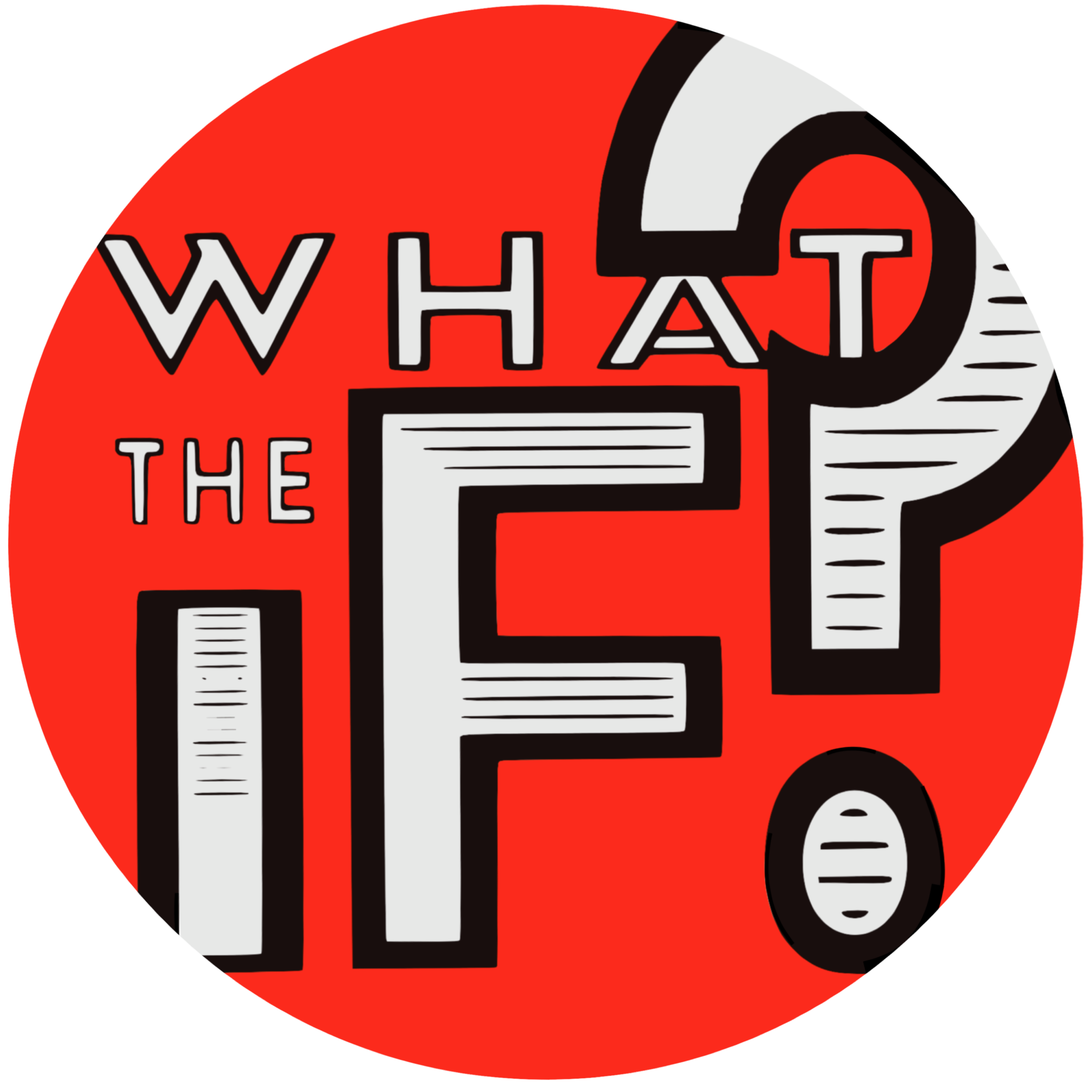Entangled BRAINS?
A QUANTUM MIND MELD?
The renowned historian of science DAVID KAISER joins us from MIT! A prolific science communicator and hilariously witty raconteur, his latest book is QUANTUM LEGACIES: Dispatches from an Uncertain World.
David asks: “What The IF we could use Quantum Entanglement to CONNECT OUR BRAINS, all the way across the Universe?” It’s our most mind-blowing, mind-expanding, mind-ENTANGLING episode ever!
MORE ON THE IF THIS WEEK
1. More on Particle Entanglement
Turns out the two displaced German scientists disagreed on a lot more than just particle entanglement! Find out more about the debates between Bohr and Einstein on quantum mechanics. For a visualization of the entanglement phenomenon, check out the image here.
2. LSD, Mind Control, and the Cold War
Although the entanglement patent didn’t get approved, the Cold War period did see many experiments with hallucinatory substances and mind control. Checkout project such as MK-ULTRA or project ARTICHOKE here.
3. China and Quantum Encryption
Even though we currently can’t get ESP to happen, other applications of quantum entanglement are being put to use. Learn more about the Chinese quantum communications project here, and check out this video from a quantum-encrypted video call!
4. More on Our Guest
Take a look at this MIT report on Dave’s own cosmic entanglement experiment! To read more on “spooky action at a distance”, here’s also an excerpt from his book, How the Hippies Saved Physics: Science, Counterculture, and the Quantum Revival.
ABOUT DAVID KAISER
David Kaiser is Germeshausen Professor of the History of Science in MIT's Program in Science, Technology, and Society, Professor of Physics in MIT's Department of Physics, and also Associate Dean for Social and Ethical Responsibilities of Computing (SERC) in MIT's Schwarzman College of Computing. He completed an A.B. in physics at Dartmouth College and Ph.D.s in physics and the history of science at Harvard University. Kaiser's historical research focuses on the development of physics in the United States during the Cold War, looking at how the discipline has evolved at the intersection of politics, culture, and the changing shape of higher education. His physics research focuses on early-universe cosmology, working at the interface of particle physics and gravitation. He has also helped to design and conduct novel experiments to test the foundations of quantum theory.
Kaiser is author of the award-winning book Drawing Theories Apart: The Dispersion of Feynman Diagrams in Postwar Physics(University of Chicago Press, 2005), which traces how Richard Feynman's idiosyncratic approach to quantum physics entered the mainstream. His book How the Hippies Saved Physics: Science, Counterculture, and the Quantum Revival (W. W. Norton, 2011) charts the early history of Bell's theorem and quantum entanglement and was named "Book of the Year" by Physics World magazine. His latest book is Quantum Legacies: Dispatches from an Uncertain World (University of Chicago Press, 2020). His edited volumes include Pedagogy and the Practice of Science: Historical and Contemporary Perspectives (MIT Press, 2005), Becoming MIT: Moments of Decision (MIT Press, 2010), Science and the American Century, co-edited with Sally Gregory Kohlstedt (University of Chicago Press, 2013), and Groovy Science: Knowledge, Innovation, and American Counterculture, co-edited with W. Patrick McCray (University of Chicago Press, 2016). He is presently working on two books about gravity: a physics textbook on gravitation and cosmology co-authored with Alan Guth, and a historical study of Einstein's general relativity over the course of the twentieth century. Kaiser served for several years as an editor of the journal Historical Studies in the Natural Sciences. He is presently Chair of the Editorial Board of MIT Press, and also serves on the advisory boards for Nautilus and Undark magazines.
Kaiser's work has been featured in such venues as Nature, Science, and Scientific American; the New York Times, the New Yorker, the Huffington Post, and the London Review of Books; and on National Public Radio, BBC Radio, and NOVA television programs. In 2010, he was elected a Fellow of the American Physical Society. Other honors include the Pfizer Prize for best book in the field (2007) and the Davis Prize for best book aimed at a general audience (2013) from the History of Science Society; and the LeRoy Apker Award for best undergraduate physics student from the American Physical Society (1993). In 2012 Kaiser was named a MacVicar Faculty Fellow, MIT's highest honor for excellence in undergraduate teaching. That same year, he also received the Frank E. Perkins Award for excellence in mentoring graduate students.
Special thanks to Kyle Crichton, Howard Zheng and Illia Zheng for their help with the show.
Like the show? Share your love for the IF by dropping a review on Apple Podcasts!
Have you subscribed? Grab one on our home page and never miss an episode!
Keep On IFFin',
Philip & Matt

